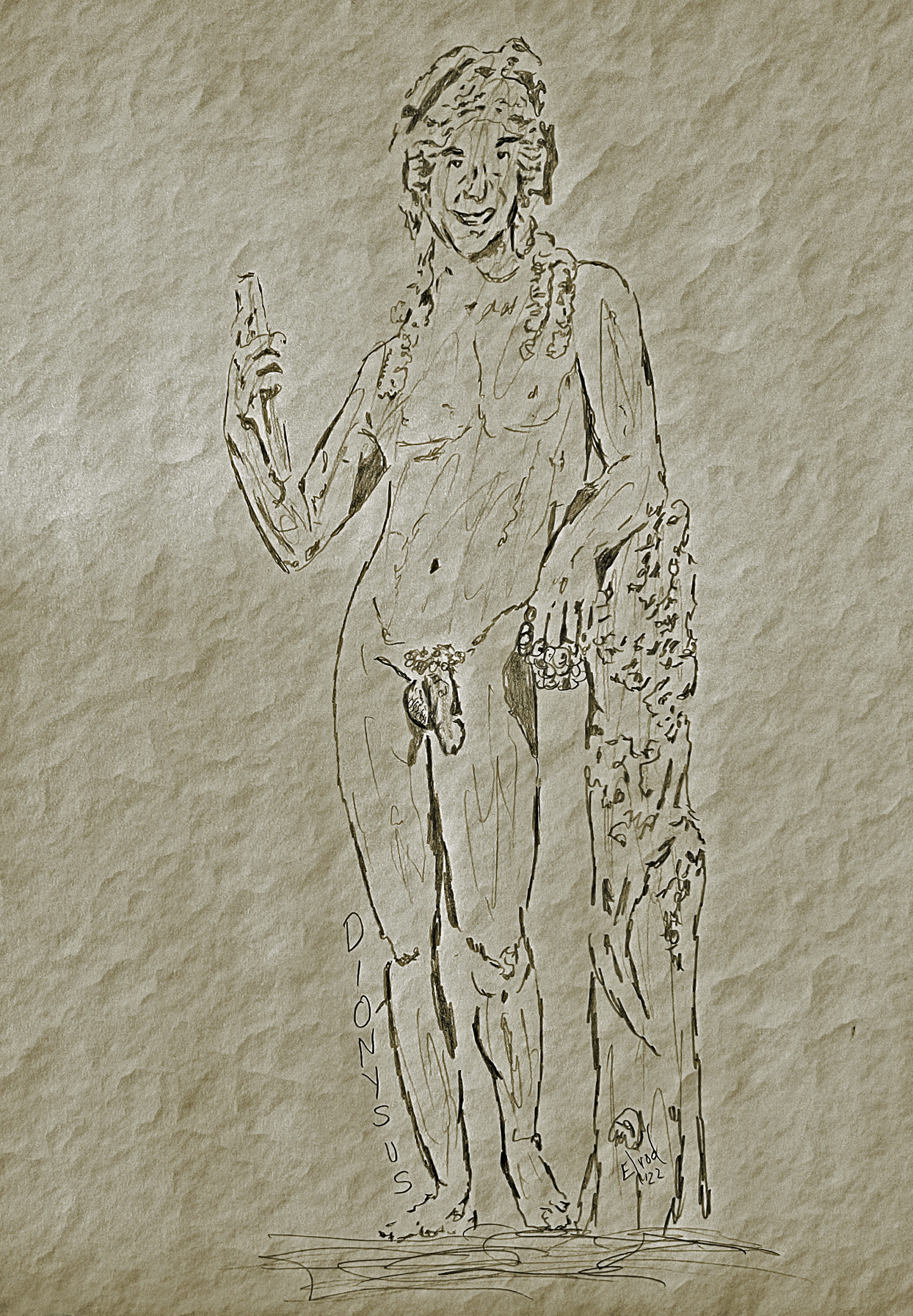
As I read and continue researching the quest to enjoy the second half of life, Dionysus repeatedly surfaces as the “god-like” archetype I most identify with. Dionysus is the nature god of fruitfulness, theatre, and vegetation, especially known as a god of wine and ecstasy. Historically, he is depicted in art as an androgynous, long-haired nude man and often portrayed with wild female followers known as maenads.
The symbolism of this piece is plentiful. For example, there are three types of thyrsus, a symbol of fertility and one of Dionysus’s most common attributes or emblems. First, I carry a flowering wand rather than a sword in my right hand. Second, my phallos represents a deep, wild, and generative (rather than toxic or patriarchal) masculinity. Third, the tree trunk I am leaning on is wound with ivy and dangling roots and erupts with leaves, fruit, and flowers.
My study of myth has blurred my ideas of gender distinction and enabled me to portray my growth in works of art such as this. In second life, I no longer identify with the sword-wielding heroes Arthur or Ivanhoe who cut, separate, slaughter, and vanquish. Rather, a playful god, such as Dionysus, a mischievous lover, trickster musician, and vegetal magician who chooses to proliferate, commune, and connect, inspires me to rewild my myth of the masculine from a sword to a wand. I stand nude and without shame, uncovered by the garments of shame and guilt, ready to proliferate wherever nature-based ecstatic wisdom is needed.
A man who can dance with plants and honor beasts, a man who can be a woman, an androgen, and an animal, is more than gender. He is a celebration.
(Adapted from The Flowering Wand, by Sophie Strand)
Leave a Reply